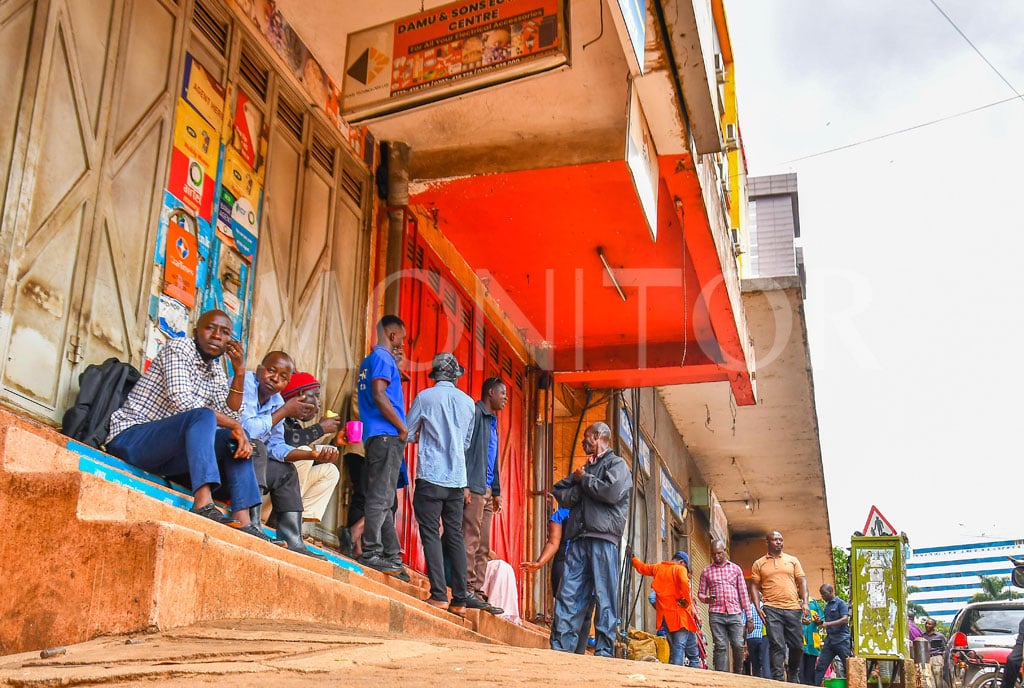
Mr Daniel K. Kalinaki
Traders in Kampala and elsewhere in central Uganda who are refusing to open their shops on particular days to protest against high taxes collected too aggressively, as well as unfair competition from foreign rivals, have been keen to emphasise that their action is economic, and not political.
Many of them probably even believe it. Not being political or partisan saves them from the armed security operatives who were deployed in the empty streets as soon as the protests were announced. It also reflects a self-preserving apathy and indifference that has developed in the national psyche over decades of mostly political atrophy.
Yet few issues are more political than taxes. And, in Uganda, few movements have caused as much political change as traders and other protestors in central Uganda.
Understanding this requires a quick trip down memory lane to 1945 when workers in Kampala and central Uganda went on strike. Conventional wisdom and colonial history would attribute this action to a republican ‘Bataka Movement’ within the Buganda Kingdom that was opposed to the Kabaka and some of his unpopular chiefs.
In reality, and as later evidence would prove, the causes of the strike were economic, sparked by demands for better pay, a post-World War II bonus that had been promised but not delivered, and demands for the right by farmers to gin their cotton.
What turned this, and a subsequent wider protest four years later political, was the way they were conducted and the response to them. In both the pre- and colonial eras, the governed were obligated to provide labour to the realm as and when it was required. Withholding this labour, as the strikers did, was a potent symbol of civil disobedience and a challenge to established authority.
Secondly, the striking workers had marched peacefully to the palace in Lubiri and demanded an audience with the Kabaka to articulate their grievances and would neither take no for an answer nor accept the representations of lower officials.
It was a historic demand for accountability from officialdom. They forced the resignation of Katikkiro Serwano Kulubya and extracted some promises that their grievances would be looked into, but the violent response to the strike by the colonial government, in which eight people were shot dead, made the economic firmly political.
History would expose the falsity of claims of a small republican plot within kingdom subjects by revealing that none of the eight striking workers shot dead were Baganda! Yet these eight became the first political martyrs of the multi-ethnic effort to create the country that would become Uganda, and to hold officials accountable.
By the time the next protest came around, in 1949, the demands had become openly more political, including calls for more democracy and accountability from the palace.
In targeting the homes of kingdom chiefs and other officials who had benefitted from the economic outcomes of the 1900 Buganda Agreement, the protestors made a statement about inequality and shifted the argument away from colonial policy to its local implementers.
A lot of the narrative about the current protest has been in the misunderstanding of the arcane tax systems, the high costs of compliance, and the steep penalties for those who fail to keep up.
Peep through the small openings of the locked shops and one can see at least three deeply political and structural underlying problems. The first is the complaints about foreign traders who, benefitting from more favourable interest rates back home and supply chain links, have come to dominate most trade sectors.
From Kabaka Mwanga’s pleas to be allowed to operate his own sawing mill to Amin’s expulsion of Asians who refused to take up Ugandan citizenship, our history is crisscrossed by wrong answers to this chronic problem.
Second, it is traders of mostly imported goods, not domestic producers, who are striking. Arguments about what rate of excise duty to be applied to imported textiles miss the bigger point about the collapse of local cottage manufacturing and its linkages to rural producer value chains. This is a symptom of structural weakness in the economy.
Third, while the striking traders have not publicly mentioned it, perhaps due to the aforementioned urge to be apolitical, the strike comes at a time of widespread economic hardship on one hand, and profligate spending by political leaders on the other – all while essential services like roads, schools and public hospitals are falling apart.
Today, as in 1945 and 1949, the unspoken truth is that the rulers have reneged on their end of the social contract with the governed. The sentences, paragraphs and chapters might be about how much tax is collected, but the story is about where and how those taxes are being (mis)spent. They might not know it, but in closing their shop doors over economic concerns, the striking traders are opening a window into unsettled political conversations that, sooner or later, must be had.
Our history tells us that when Ugandan traders start sneezing, it is time for politicians to catch a cold – and for things to heat up in the country.
Mr Kalinaki is a journalist and poor man’s freedom fighter.
[email protected]; @Kalinaki

